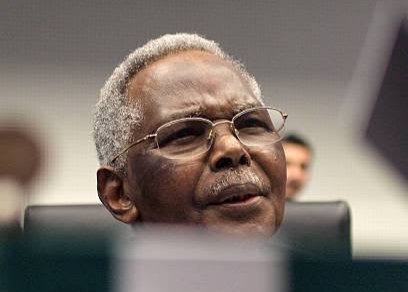Add a comment
Advertisement


Nigeria has finally succeeded in stopping the enforcement of the $11 billion arbitration award to P&ID, a shell company registered in the tax-haven British Virgin Islands. It has been a legal topsy turvy since the huge fine was imposed on Nigeria in January 2017 over a failed gas processing contract which the country’s lawyers argued was obtained by fraud and corruption. TheCable takes us through the diary of events, beginning from 2010.
January 11, 2010: Process and Industrial Developments (P&ID) Ltd signs a gas supply and processing agreement (GSPA) with Nigeria to develop a processing plant in Calabar, Cross River state. Rilwanu Lukman (pictured) was the minister of petroleum resources. He died in 2014.
August 22, 2012: The GSPA collapses as P&ID fails to do any work. P&ID begins private arbitration proceedings against Nigeria at the London Court of International Arbitration, $5.96 billion as compensation.
July 17, 2015: The arbitration tribunal finds that Nigeria breached the contract.
January 31, 2017: The tribunal orders Nigeria to pay P&ID about US$6.6 billion. Interest of 7 percent to start counting from March 20, 2013.
June 28, 2018: Abubakar Malami, then Nigeria’s attorney-general, is directed by President Muhammadu Buhari to investigate the GSPA.
August 16, 2019: Justice Butcher of the UK commercial court says he would grant P&ID the right to seize Nigeria’s assets, effectively converting the arbitration award to an enforceable judgment. Nigeria decides to appeal.
September 19, 2018: The Economic and Financial Crimes Commission (EFCC) secures criminal conviction against P&ID and P&ID Nigeria on charges of fraud and money laundering.
September 20, 2019: Grace Taiga, a former director for legal services at the petroleum ministry, is remanded in Suleja Prison over allegations of bribery and failing to follow due process in giving legal advice on the GSPA.
September 26, 2019: Ross Cranston, a judge of the Business and Property Courts of England and Wales, grants Nigeria’s application for an extension of time and relief from sanctions, temporarily halting the enforcement of the award.
October 22, 2019: The EFCC charges two Britons related to P&ID to court with 16 counts of money laundering over the failed GSPA.
November-December, 2019: Justice Cranston agrees that the award of the contract and the arbitration fine should be properly scrutinised. Nigeria provides evidence to argue that the GSPA was secured through fraud and corruption.
September 4, 2020: Big break for Nigeria as the English court allows Nigeria to challenge the arbitration award. “It is not my function at this preliminary stage to decide whether a fraud took place,” Cranston said. “However, it has been necessary to consider a considerable amount of the material to decide firstly, whether, as Nigeria contended, there is a prima facie case of fraud and how strong that case is, and secondly, the steps Nigeria took to investigate the alleged fraud from late 2015. Both matters are relevant to the issues of whether Nigeria’s claim is barred altogether and whether time should be extended in its favour and relief from sanctions granted.” Case goes back to the high court for trial.
December 22, 2021: Brendan Cahill, one of the promoters of P&ID, is detained following investigations into the alleged bribery of Nigerian officials over the GSPA.
January 23, 2023: Nigeria’s substantive application to set aside the arbitration award is heard by Justice Robin Knowles as fraud trial begins.
March 9, 2023: Nigeria makes its final case that P&ID and its associates are guilty of bribery and corruption on an “industrial scale”. Judgment is reserved.
October 23, 2023: Knowles rules in favour of Nigeria, agreeing that the arbitration awards “were obtained by fraud and the awards were, and the way in which they were procured, contrary to public policy”.